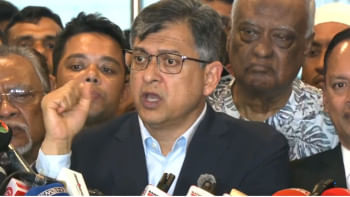Extending indemnity for quick rental deals
WE are surprised that the Energy Fast Supply Enhancement (Special Provisions Act 2010) has been extended by another four years.
Any arrangement even if it has legislative sanctions, which circumvents the rules of business, is bound to be exploited and misused to the detriment of the country's interest. The case in point is the indemnity, given in 2010 to all power generation deals that were put into effect without bidding. This provision has been misused to hide the inefficiencies of different authorities connected with the energy ministry, as a news analysis on the matter, appearing in this newspaper recently, has exposed.
Understandably, the measure was taken as a temporary expedient to tide over a crisis situation by setting up rental power projects which were quicker to set up than conventional ones. But even if it was well intentioned, the law impinged on the authority of the Supreme Court to look into the transparency and clarity in the actions of the government, particularly those that involved money.
The idea of providing indemnity, whatever may be the compulsions for doing so, is in itself ultra vires, and given the sector that it was provided to, the indemnity has been used to award work to cronies and to cover up failures of some contracted parties to deliver.
No government can oblige itself to feel unaccountable for its actions, particularly in cases which involve both time and good deal of money. We strongly urge the government to not only scarp the law, which by all definitions of the word, is a bad law, but also bring under scrutiny the entire gamut of quick rental for the sake of clarity and accountability.

 For all latest news, follow The Daily Star's Google News channel.
For all latest news, follow The Daily Star's Google News channel. 



Comments